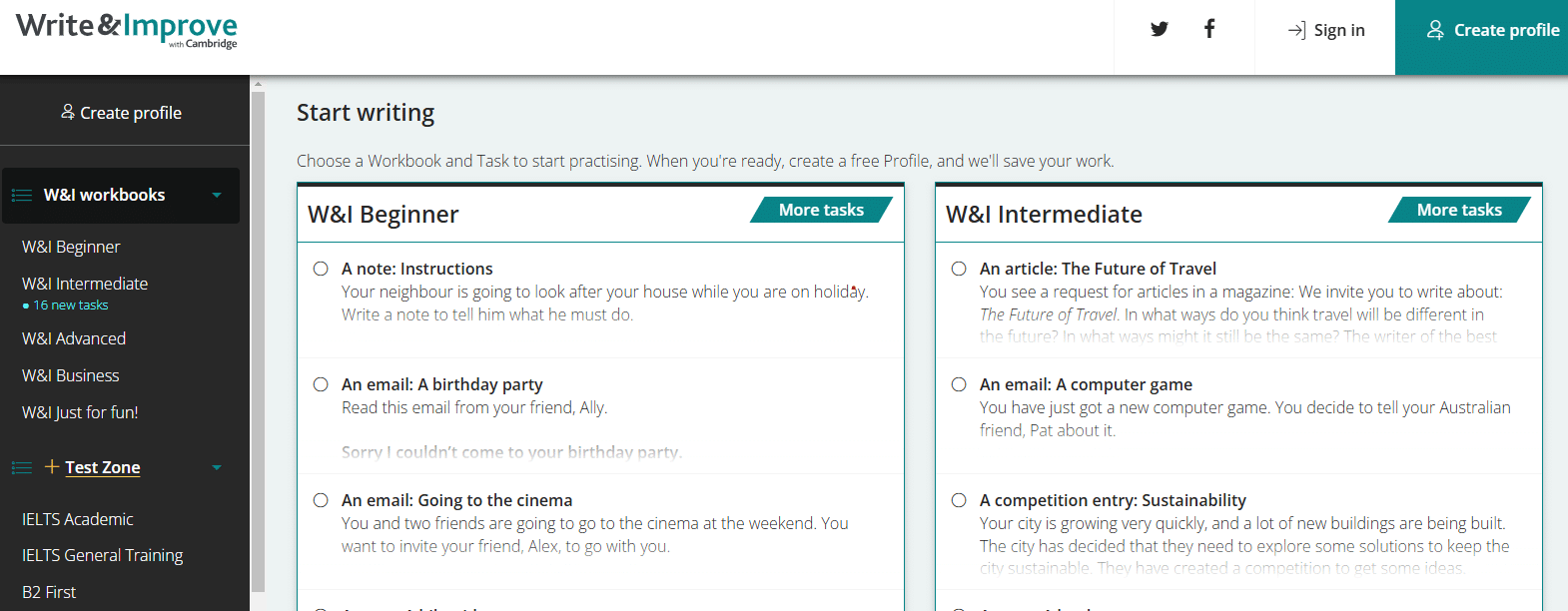

Do you understand everything but still find yourself staring at a blank page when it comes to expressing yourself? There are different stages of learning a language, but improving your writing is essential and doesn’t have to be overwhelming. Anyone can become a better writer with the right approach and tools. Here’s a simple guide to help you boost your skills.
1. Read More
Good writers are avid readers. Reading expands your vocabulary, exposes you to different writing styles, and improves your understanding of grammar and sentence structure.
Start with basic texts and articles before moving to more complex topics and literature. Choose a variety of materials, such as:
- Blogs and articles to understand modern, conversational writing styles.
- Fiction to explore storytelling techniques.
- Nonfiction to learn how to convey facts and arguments effectively.
Find texts that match your level on lingua.com or the British Council’s website. If you are unsure of your level, take our test here. Do you prefer reading the news but struggle to understand the wording? News in Levels presents the news at three different levels, from basic to advanced, including a word explanation and an audio version of the article.
2. Practice Regularly
Like any skill, writing improves with practice. Don’t be afraid of making mistakes—it is part of the learning process. Set aside time every day or week to write:
- Try basic writing exercises, such as describing what you see around you in the room.
- Start a journal to document your thoughts and emotions.
- Write short stories or essays on topics you enjoy.
- Challenge yourself with prompts or emulate writers you admire.
Consistency will build your confidence and sharpen your skills.
Try Cambridge University’s tool Write & Improve, where you can practice writing based on your level and receive immediate feedback.
3. Use Grammar-Checking Apps
Grammar-checking tools are a game-changer for language learners. They catch mistakes and provide suggestions to refine your writing. Some of the best apps include:
- QuillBot: Exceptional for fixing grammar mistakes and improving clarity. Its “Fix All Errors” feature is a time-saver for longer texts.
- Grammarly: A popular option that offers real-time grammar and style suggestions, especially useful for professional emails.
- LanguageTool: Great for detecting spelling and punctuation errors in multiple languages.
These tools not only improve accuracy but also teach you to recognize common mistakes.
4. Edit and Revise
Good writing is rewriting. After finishing your first draft, take a break before revising. This gives you fresh eyes to spot:
- Redundant phrases.
- Awkward sentences.
- Unclear ideas.
Focus on improving clarity, tone, and flow. You can also read your writing aloud to check if it flows naturally.
5. Seek Feedback
Ask for feedback from trusted friends, teachers, or colleagues. Constructive criticism helps you identify areas for improvement and strengths to build on.
Conclusion
Improving your writing takes time, patience, and practice, but it is a rewarding journey. By setting clear goals, using helpful tools like grammar checkers, and staying open to feedback, you will see noticeable progress in no time. Happy writing!
For more information about our services contact the inlingua Malta team on info@inlinguamalta.com












